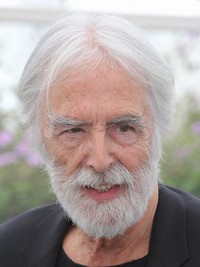Michael Haneke

Despite his bleak and often masochistic view of humanity, Austrian-born filmmaker Michael Haneke has nonetheless established himself as one of Europe's most important directors. Ever since his emergence with "The Seventh Continent" (1989), a deeply disturbing look at soul-crushing domesticity, Haneke established himself as a director unafraid to explore the darkest recesses of human nature. But it was "Funny Games" (1997), a shocking examination of society's complicity in media violence, that brought Haneke to the fore, earning him praise for his depictions of brutality. He earned several awards and nominations for "The Piano Teacher" (2002), which propelled Haneke onto the international stage. With his shot-for-shot remake of "Funny Games" (2008) for English-speaking audiences, and the back-to-back Palme d'Or winners "The White Ribbon" (2009) and "Amour" (2012), Haneke introduced himself to a wider array of fans and detractors who were in mutual agreement that he was the crown prince of cinematic darkness.